Michael Jackson
Tupac Will Not Feature On New Michael Jackson Album Xscape
Published
10 years agoon
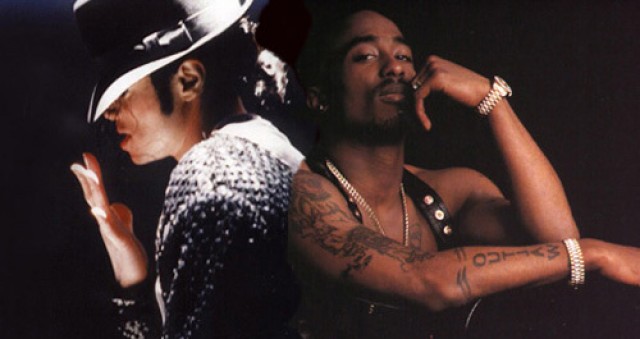
Speculation began circulating online yesterday that rap legend Tupac Shakur would make a surprise posthumous appearance on the title track of the new Michael Jackson album Xscape.

After attending the exclusive VIP listening session hosted by Epic Records in NYC on April 8, VIBE Magazine Music Editor John Kennedy published an article detailing the event, including that L.A. Reid had played an alternate version of the song “Xscape” featuring a rap verse by Tupac.
“On the second playback of Xscape, after many of the attendees were already retrieving phones and bags from coat check, L.A. Reid unearthed a version of the title track with vocals from Tupac Shakur’s Changes,” reports Kennedy in the article.
“And believe it or not, it was epic.”
This sparked widespread discussion and debate online – particularly on Jackson fan sites – regarding the pros and cons of the posthumously-crafted collaboration.
I reached out to Mr. Kennedy today for clarification regarding the track, asking him whether or not he knew if there were plans to include it on the album.
“According to Epic’s PR, Pac’s verse will not appear on Xscape,” he told me.
“No word on whether it’ll ever come out.”
Jeff Jampol, who serves as both manager of The Estate of Tupac Shakur, and consultant to The Estate of Michael Jackson, gave me the following statement:
“It was just an idea floated by a remixer during a meeting, I’m told. No one has approached the Tupac Shakur Estate about it, nor has any permission been granted. So I’d say it’s a nonissue.”
Damien Shields is the author of the book Michael Jackson: Songs & Stories From The Vault examining the King of Pop’s creative process, and the producer of the podcast The Genesis of Thriller which takes you inside the recording studio as Jackson and his team create the biggest selling album in music history.

You may like
-
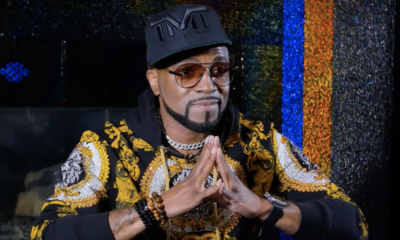

Producer Teddy Riley Comes Clean Regarding Fake Songs From Posthumous Michael Jackson Album
-
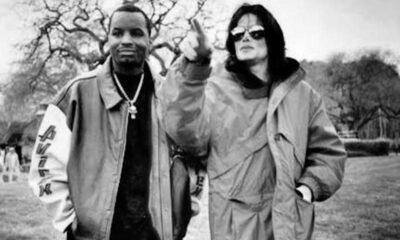

Michael Jackson Meets America in Invincible Album Outtake ‘A Place With No Name’
-
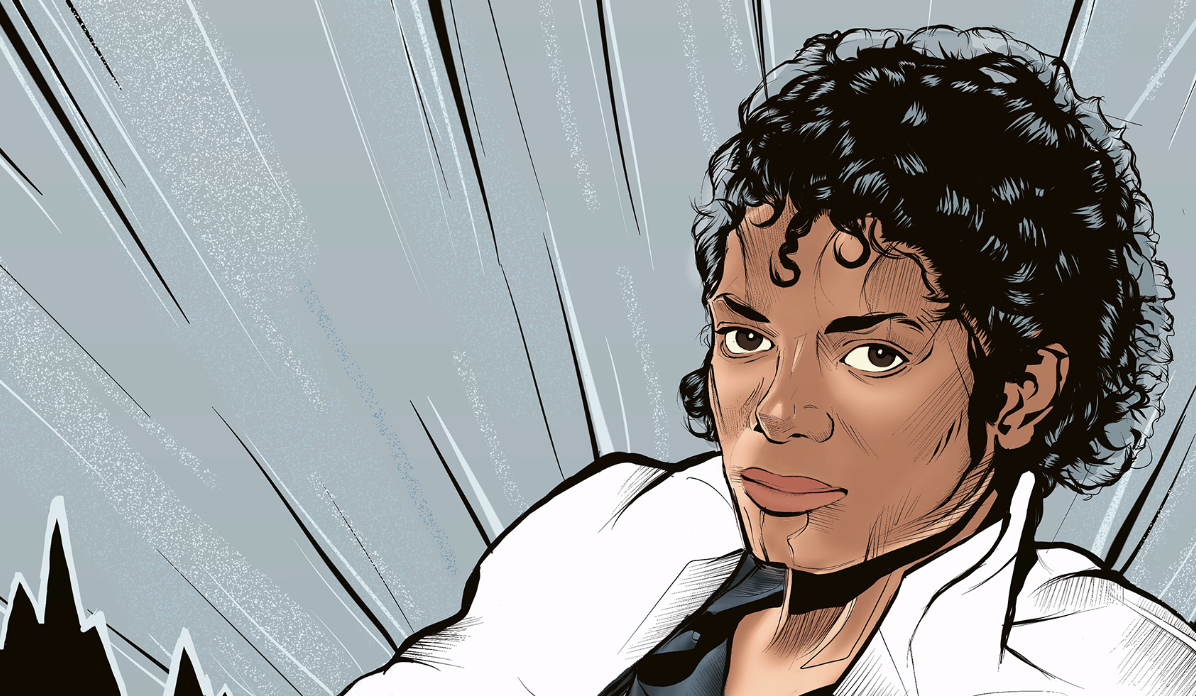

The Genesis of Thriller – A Michael Jackson Podcast Documentary
-
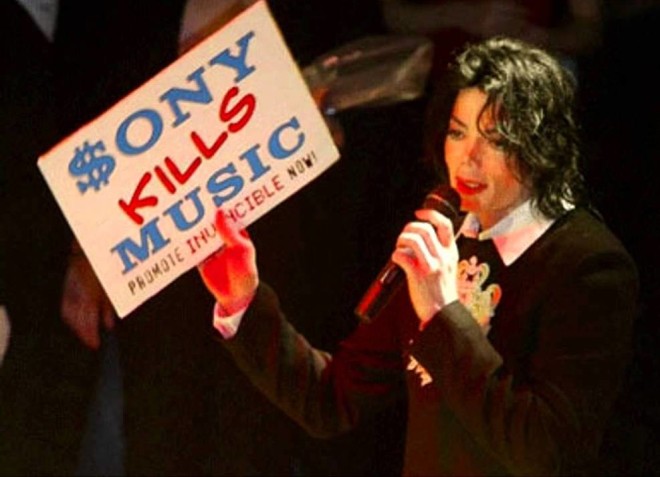

BREAKING: Court Rules Sony Music Can Sell Fake Songs Under Michael Jackson’s Name
-
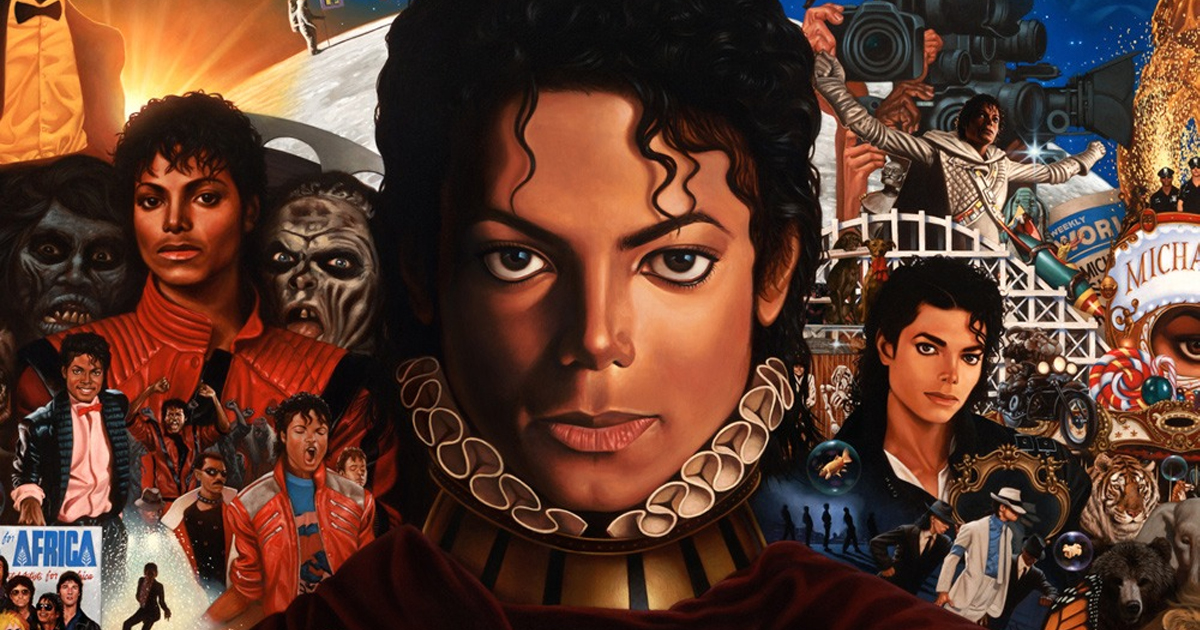

Partnership Between Sony Music and Michael Jackson’s Estate Renewed Amidst Ongoing Fraud Lawsuit
-
Auction Items Labelled as ‘Michael Jackson’ Recordings Do NOT Feature Jackson’s Voice
7 Comments
Leave a Reply
Cancel reply
Leave a Reply
Cascio Tracks
First Amendment Coalition to Support Sony and the Jackson Estate in Fake Songs Lawsuit
Published
3 years agoon
February 9, 2021
There has been yet another twist in the class action lawsuit filed by Californian consumer Vera Serova against Sony Music and the Estate of Michael Jackson regarding three allegedly fake songs commercially released on the 2010 Michael album.
In documents filed with the California Supreme Court yesterday, an organisation called The First Amendment Coalition has requested permission to file an amicus brief in support of Sony and the Estate’s purported constitutional right to sell fake songs as authentic Michael Jackson material.
FAC’s request comes after four separate amici were filed in support of plaintiff Serova by several consumer protection groups along with the California Attorney General’s Office.
All previously filed briefs support Serova’s assertion that this is a straightforward case of false advertising, and that billion-dollar corporations should not be able to commercially label fake art as authentic.
They also assert that by filing an anti-SLAPP motion against Serova, Sony and the Estate misappropriated a statute which is supposed to protect the general public against the limitless resources of wealthy corporations, and to prevent those corporations from intimidating the public into abandoning legal action against them.
Nine consumer protection organisations stated in a joint filing that Sony and the Estate have misused the anti-SLAPP statute to achieve the exact opposite of its intended purpose.
But according to documents filed yesterday, The First Amendment Coalition believes that if the Supreme Court rules in plaintiff Serova’s favour, and if a precedent is set that Sony and the Estate cannot sell fake songs as authentic Jackson material, it could have “significant implications for many different First Amendment contexts beyond the particular circumstances of this case.”
In this case, Sony asserts that they should not be held accountable for the statements made on the Michael album cover and in their television commercial, because those statements were “noncommercial” in nature. Rather, they argue, those statements are merely their contribution to the ongoing public debate about whether the vocals on three of the songs were authentic or fake, and that this makes it free speech under the First Amendment.
FAC has indicated that they will stand with Sony on this matter.
According to the mission statement published on their website, FAC is a nonprofit public interest organisation dedicated to “advancing free speech” and “public participation in civic affairs.”
By definition, public participation in civic affairs is a process in which members of society take collective action to address issues of public concern.
This begs the question: Is the definition of FAC’s mission more appropriately applied to a multi-billion dollar corporation’s purported right to claim that a commercial product is legit, when in fact it is fake? Or to a member of the public who seeks to take collective action to address the issue of that multi-billion dollar corporation falsely advertising that same product to millions of unwitting consumers?
Despite Sony and the Estate’s best efforts to stop her, the plaintiff in this case (Miss Serova) is a member of society who is attempting to take collective action (by filing a class action lawsuit) to address an issue of public concern (that a corporation may be defrauding consumers).
Moreover, FAC’s mission statement also claims to advocate for a “more open and accountable government” and “the people’s right to know”.
It should be noted that the Californian government is in fact advocating for openness and accountability and for the public’s right to know in this case – on behalf of the plaintiff, against the billion-dollar corporation that has conceded in its legal arguments to have ripped her off.
For the purposes of this proceeding, defendants Sony and the Estate have stipulated that the songs in question are indeed fake. And while their exact arguments aren’t due to be filed with the court until March 10, 2021, in the context of the defendants’ concessions, FAC could, in theory, be perceived to be advocating in favour of fraudulent representation of forged art, rather than for openness and accountability and the people’s right to know.
In a press release issued on January 29, 2021, the California Attorney General said:
“Products must deliver on their claims. If someone buys an album from a recording artist, they should expect that the songs on the album were made by that artist unless noted otherwise… We must hold companies accountable to stand by their products. Companies have a First Amendment right to communicate, but their claims must be informed and accurate.”
More to come when FAC files their amicus brief.
A podcast series called Faking Michael is in the works, detailing a decade-long investigation of this case. You can subscribe to Faking Michael on Apple Podcasts, Spotify and YouTube.
Damien Shields is the author of the book Michael Jackson: Songs & Stories From The Vault examining the King of Pop’s creative process, and the producer of the podcast The Genesis of Thriller which takes you inside the recording studio as Jackson and his team create the biggest selling album in music history.

Cascio Tracks
Californian Government Joins Fraud Lawsuit Against Sony Music and Jackson Estate
Published
3 years agoon
January 30, 2021
The California state government has officially joined a class action lawsuit against Michael Jackson’s estate and record company.
In a press release issued yesterday, the state’s Attorney General, Xavier Becerra, accuses Sony of “shirking responsibility” for making “false and misleading claims” about a posthumously released Michael Jackson album, and then declaring ignorance of their misrepresentation.
The Attorney General also filed an amicus brief with the California Supreme Court, urging them to intervene in the case of Serova vs Sony Music Entertainment, et al., for fear that “broad, destabilising consequences for well-established false advertising principles,” could be felt if it did not take action and rectify a problematic Appeals Court decision in the case.
The lawsuit at the centre of the amicus brief was filed almost 7 years ago. The suit alleges that Sony Music and the Jackson Estate misled consumers when they commercially released the Michael album, comprising 10 tracks, in December 2010.
The plaintiff in the case, Vera Serova, insists that three of the 10 tracks on Michael are part of an elaborate artistic fraud masterminded by co-defendants Eddie Cascio and James Porte, who sold the tracks to Jackson’s Estate for millions of dollars after the superstar’s death.
Serova alleges that those three tracks, known as the Cascio tracks, are fakes sung by an impostor. And she’s not alone.
Months before the album was released, members of the Jackson family warned Sony and the Estate regarding the Cascio tracks, insisting that they were fakes and should not be released. One of the Estate’s co-executors, John McClain, agreed with the Jackson family.
In response, Sony issued a press release stating that they had “complete confidence in the results of their extensive research” that the vocals were authentic. The company then released the album, including three Cascio tracks, against the family’s wishes.
Sony even went as far as to explicitly inscribe on the album cover that the vocals on all the album’s tracks were “performed by Michael Jackson.”
But despite Sony’s repeated assurances that the vocals were legit, when Jackson’s fans got their hands on the album and heard the Cascio tracks for themselves, a huge controversy ensued. Thousands upon thousands of fans around the world instantly rejected them as fakes.
Ironically, this very controversy – which Sony itself created by releasing the Cascio tracks – is one of the many points the company has since tried to raise as a get-out-of-jail-free card.
Sony says that because thousands of people were questioning the authenticity of the vocals, the company’s claim that Jackson sang them was not commercial in nature, but merely their non-commercial contribution to the ongoing authenticity debate.
But the Attorney General argues that Sony’s logic is absurd. The fact that there were questions over the vocals, the AG says, only increased Sony’s need be sure that the songs were indeed authentic if they intended on claiming they were:
“Questions about the authenticity of songs allegedly recorded by Michael Jackson shortly before his death naturally led to significant interest and debate among fans, members of the media, and the public more generally. That level of interest made it all the more important for Sony to provide accurate information about the songs to consumers.”
The AG added: “It would seriously frustrate the State’s interest in combating false or misleading advertising to immunise a seller from liability merely because its claims bear some relation to a matter of public interest or a public figure.”
Moreover, the Attorney General completely rejects Sony’s claims that their speech wasn’t commercial in nature.
Because the album cover explicitly stated that the songs were “performed by Michael Jackson,” Sony was bound to that statement as being the truth, and could be held liable under consumer protection laws if it were proven otherwise.
“A seller’s description of a product on a label or in an advertisement is a classic form of commercial speech. Thus, assuming Serova’s allegations are true, application of California’s false advertising statutes fully comports with the First Amendment.”
In the press release issued yesterday to alert the media of the California state government’s support of Serova’s lawsuit, Attorney General Becerra said:
“Products must deliver on their claims. If someone buys an album from a recording artist, they should expect that the songs on the album were made by that artist unless noted otherwise… We must hold companies accountable to stand by their products. Companies have a First Amendment right to communicate, but their claims must be informed and accurate.”
Sometime in mid-February the Los Angeles City Attorney’s Office is due to join the California Attorney General and the nine other consumer protection groups already supporting Serova’s case. No amicus brief has been filed in support of Sony or the Jackson Estate.
A date for the oral hearing of these briefs is yet to be set.
A podcast series called Faking Michael is in the works, detailing a decade-long investigation of this case. You can subscribe to Faking Michael on Apple Podcasts, Spotify and YouTube.
Damien Shields is the author of the book Michael Jackson: Songs & Stories From The Vault examining the King of Pop’s creative process, and the producer of the podcast The Genesis of Thriller which takes you inside the recording studio as Jackson and his team create the biggest selling album in music history.

Cascio Tracks
Fake Michael Jackson Songs Lawsuit Boosted by Support from Consumer Protection Groups
Published
3 years agoon
December 14, 2020
A legal quest for justice over a posthumous Michael Jackson album including 3 allegedly-fake songs has received a serendipitous boost on the 10th anniversary of the album’s release.
On Friday, December 11, 2020, the Berkeley Center for Consumer Law and Economic Justice filed an amicus curiae brief with the California Supreme Court in support of plaintiff Vera Serova’s ongoing class action consumer fraud lawsuit against Sony Music and the Estate of Michael Jackson.
The powerfully-worded brief was co-signed by 8 additional consumer protection organisations. Click here to read it in full.
Serova’s lawsuit, filed in 2014, alleges that Sony and the Estate misled her and millions of consumers when they commercially released the Michael album on December 14, 2010 – exactly ten years ago today.
The lawsuit alleges that three songs on the album are forgeries sung by an impostor vocalist, and that Sony and the Estate falsely advertised those songs to consumers as authentic Jackson material.
The three songs at the centre of the lawsuit – Breaking News, Monster and Keep Your Head Up – were originally co-written and produced by Eddie Cascio and James Porte, who are co-defendants in the fraud component of the case.
The consumer protection organisations wrote in their joint filing on Friday that Serova’s is a “straightforward case of deceptive advertising.”
Yet the case has been in legal limbo for more than four years.
Back in 2016, Sony and the Estate filed an anti-SLAPP motion against Serova, claiming that her lawsuit was a ‘strategic lawsuit against public participation’ (SLAPP) intended to deny the billion-dollar corporations their purported constitutional right to sell fake songs as authentic Jackson material.
For the purposes of their legal arguments, Sony and the Estate conceded that Jackson was not the singer of the three songs in question. To be clear, this was not an outright admission that Jackson was not singing – after 6 years in court, that issue hasn’t even been addressed yet.
Rather, their concession was made in order to prevent Serova from presenting evidence that the songs are fakes. Under normal circumstances, Serova would have been required to demonstrate that her case wasn’t a shakedown, and that she could substantiate her claims with supporting evidence.
But Sony and the Estate said that it didn’t matter if they were fake, arguing that the law allows them to lie to consumers regardless.
Their argument centres around their assertion that the statements made as part of the album’s promotional material – including on the album cover and in a TV commercial – are not commercial in nature. Yes, they’re arguing that the speech in a commercial isn’t commercial speech.
“If we ripped people off and it’s noncommercial speech, they lose under the statutes,” said Sony lawyer Zia Modabber in court. “That is just the law.”
In August 2018, the corporations succeeded in their bid to be dismissed from the case. Serova fought back, petitioning the California Supreme Court to intervene, which they did. But when the case was sent back to the Appeals Court in January 2020, Sony and the Estate were yet again dismissed.
Shockingly, the Appeals Court ruled that Sony and the Estate should be allowed to lie to consumers by selling fake songs as authentic Jackson material. And so Serova petitioned the California Supreme Court a second time, seeking a review of the Appeals Court’s bizarre ruling.
As reported here in April, the Supreme Court found that the Appeals Court’s ruling was legally problematic and granted Serova’s petition for review.
In their filing on Friday, the consumer protection organisations supporting Serova’s case took aim at Sony and the Estate’s application of the anti-SLAPP statute, writing that it “does not provide a get-out-of-jail-free card to forgers.”
Under the stipulation governing this proceeding, Sony’s promotion of Michael plainly violates California’s statutes protecting consumers from false and misleading advertising. Sony marketed Michael as “a brand new album from the greatest artist of all time,” with “9 previously unreleased vocal tracks performed by Michael Jackson.” Because, as the parties have agreed for purposes of this appeal, three of the nine songs were not sung by Michael Jackson, Sony has made advertising statements that were untrue and misleading and has therefore violated California’s basic consumer protection laws.
Amicus curiae brief, Berkeley Center for Consumer Law and Economic Justice et al., December 11, 2020.
The anti-SLAPP statute is intended to protect David from Goliath – to shield the general public against the limitless funds and resources of wealthy corporations, and to prevent those corporations from intimidating the public into abandoning legal action against them.
The consumer protection organisations state in their filing that Sony and the Estate have misused the anti-SLAPP statute to achieve the exact opposite of its intended purpose:
What the present proceeding entails is the misuse of the anti-SLAPP statute by a well-funded corporation to try to silence individual consumer claims arising from what are conceded to be, for purposes of this appeal, the corporation’s misleading commercial statements. In other words, this action embodies precisely the reverse of what the anti-SLAPP statute is intended to accomplish.
The consumer protection organisations concluded their 47-page filing with the following:
The anti-SLAPP statute must not be misused to undermine California’s consumer protection laws. When Sony promoted Michael, it engaged in misleading or deceptive advertising. Sony has no free speech right to deceive consumers. Ms. Serova’s claim for misleading advertising is not a “strategic lawsuit against public participation.” To the contrary: it is a straightforward deceptive advertising action brought to vindicate precisely the individual rights that both California’s consumer protection laws and its anti-SLAPP statute are designed to protect.
The California Attorney General’s Office has also stepped in, requesting an extension to file their own amicus brief in support of Serova.
This means that when the California Supreme Court hears Serova’s case sometime next year, she will not only have the support of at least 9 independent consumer protection organisations, but also the backing of the California state government.
UPDATE: The Los Angeles City Attorney’s office has also joined the chorus of support behind Serova’s case, formally requesting an extension to file an amicus brief on December 14, 2020.
Stay tuned for further updates on the case. This website will continue to provide information as it becomes available.
You can also subscribe to the upcoming Faking Michael podcast series about this matter. A release date has not yet been set, but subscribers will have episodes delivered to them when they do become available.
The trailer for Faking Michael is available on Apple Podcasts, Spotify and YouTube.
Damien Shields is the author of the book Michael Jackson: Songs & Stories From The Vault examining the King of Pop’s creative process, and the producer of the podcast The Genesis of Thriller which takes you inside the recording studio as Jackson and his team create the biggest selling album in music history.

Subscribe to Podcast
Articles


Producer Teddy Riley Comes Clean Regarding Fake Songs From Posthumous Michael Jackson Album
Legendary producer Teddy Riley has spoken out against the controversial Michael Jackson album he worked on after the pop star’s...


Huge Win for Michael Jackson Fan as Supreme Court Rejects Sony’s Free Speech Defense in “Fake” Songs Lawsuit
Two ‘get out of jail free’ cards, used by lawyers for Sony to avoid facing the music in a consumer...


Alleged Forgeries Removed From Michael Jackson’s Online Catalog After 12 Years of Protests and a Fraud Lawsuit
Three songs alleged to have been falsely attributed to Michael Jackson were abandoned by the pop star’s estate and record...

Supreme Court Judge Grills Sony Lawyer Over ‘Contradictory’ Arguments in Alleged Michael Jackson Fraud
A lawyer defending Sony Music and the Estate of Michael Jackson in a consumer fraud lawsuit has today argued that...

Court Date Set in Supreme Court Battle Over Legal Right to Sell Alleged Michael Jackson Forgeries
Sony Music and the Estate of Michael Jackson will again fight for their right to sell alleged forgeries as authentic...


Invincible, ‘Xscape’ and Michael Jackson’s Quest for Greatness
Below is a chapter from my book Michael Jackson: Songs & Stories From The Vault, revised for this article. The full book...
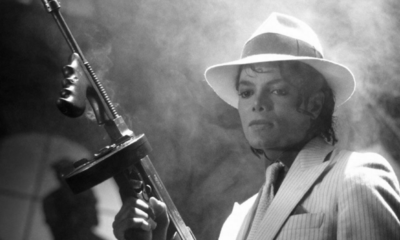

‘Blue Gangsta’ and Michael Jackson’s Fascination with America’s 20th Century Underbelly
Below is a chapter from my book Michael Jackson: Songs & Stories From The Vault, revised for this article. The full book...


Michael Jackson Meets America in Invincible Album Outtake ‘A Place With No Name’
Below is a chapter from my book Michael Jackson: Songs & Stories From The Vault, revised for this article. The full book...

First Amendment Coalition to Support Sony and the Jackson Estate in Fake Songs Lawsuit
There has been yet another twist in the class action lawsuit filed by Californian consumer Vera Serova against Sony Music...

Californian Government Joins Fraud Lawsuit Against Sony Music and Jackson Estate
The California state government has officially joined a class action lawsuit against Michael Jackson’s estate and record company. In a...



the walker
April 11, 2014 at 9:12 pm
Hi Damien!
First of all, thank you for all your hard wokr and dedication to MJ and this “new” album
I’d like to ask you, When you talked to Mr. Kennedy, he told you that the version of Xscape (song) with 2pac will not feature in the Album?? or he actually was talking about both Album and Single?
I’m asking this because MAYBE he was talking only about the album’s 8th track, but the 2pac version could appear as a remix in the single
I can dream.. can’t I? haha
Cheers!
Adam Jackson
April 11, 2014 at 9:35 pm
I want to hear this so much!!
rachel1970
April 12, 2014 at 12:40 am
I was so excited to read that last night, well, I hope it’ll be released sometime soon……..
Kevin
April 12, 2014 at 4:44 am
I have always been a major 2Pac fan. And I will be the first to tell you, how they remix his music can be somewhat awful because not only does it change the original meaning or essence of the song but it often sometimes puts 2Pac with other artist he never worked with. In this case, I don’t think there would be a problem with Michael Jackson. 2Pac sampled Michael Jackson several times and they were suppose to work together on the original chorus of Thug/Niggaz Nature which is a play on Human Nature.
I would love to hear this version even though it is a already released 2Pac verse. However, I fully understand if Michael Jackson fans are against this. I realize that original content is important thing to fans. I myself, have been waiting almost two decades to see the original songs released.
Chayse
April 13, 2014 at 1:38 am
Ew..No thanks. And not because I’m not a fan of Pac’s, I just don’t think it’s a good collaboration. Michael worked with BIG, but I’ve never heard of him expressing any interest in recording with 2pac. Not only that, but I think part of the reason Michael was so fond of BIG was because he always had great composure, you never saw BIG get completely disrespectful or be all loud with the media and all that, he was a laid back guy. So they somehow meshed well. Tupac and Michael though? I just don’t see that being anything but volatile. Not violent, but I just see Michael saying to his team during one of Pac’s in-studio rants while accompanied by Suge Knight, “Get me out of here and fast”. I just don’t believe personally that Michael was a fan of the whole Death Row movement that was going on at the time. I think in a sense Michael was fascinated by the street life, he loved the authenticity of it, as proven by Beat It and TWYMMF video shoots, which is why he admired BIG so much, but Tupacwas just completely over the top at times.
Now, along with that, anybody have any credible source of Michael collabing with Tupac for Thugz Nature? I just DO NOT see Michael re-recording his chorus from Human Nature on another persons song and simply exchanging the word “human” with “thug”…Just don’t see him signing off on that.
Arjun Sanyal
April 14, 2014 at 8:00 am
I have a feeling that this will be released as part of the ‘Xscape’ single – the song serves at title track for the album, so it will probably be released as a single. It will probably have the contemporary version featured on the album, Michael Jackson’s original version, and this version featuring Tupac
Jackson
August 11, 2014 at 1:39 pm
I see you share interesting stuff here, you can earn some additional cash, your blog
has big potential, for the monetizing method, just search in google – K2 advices how to monetize a website